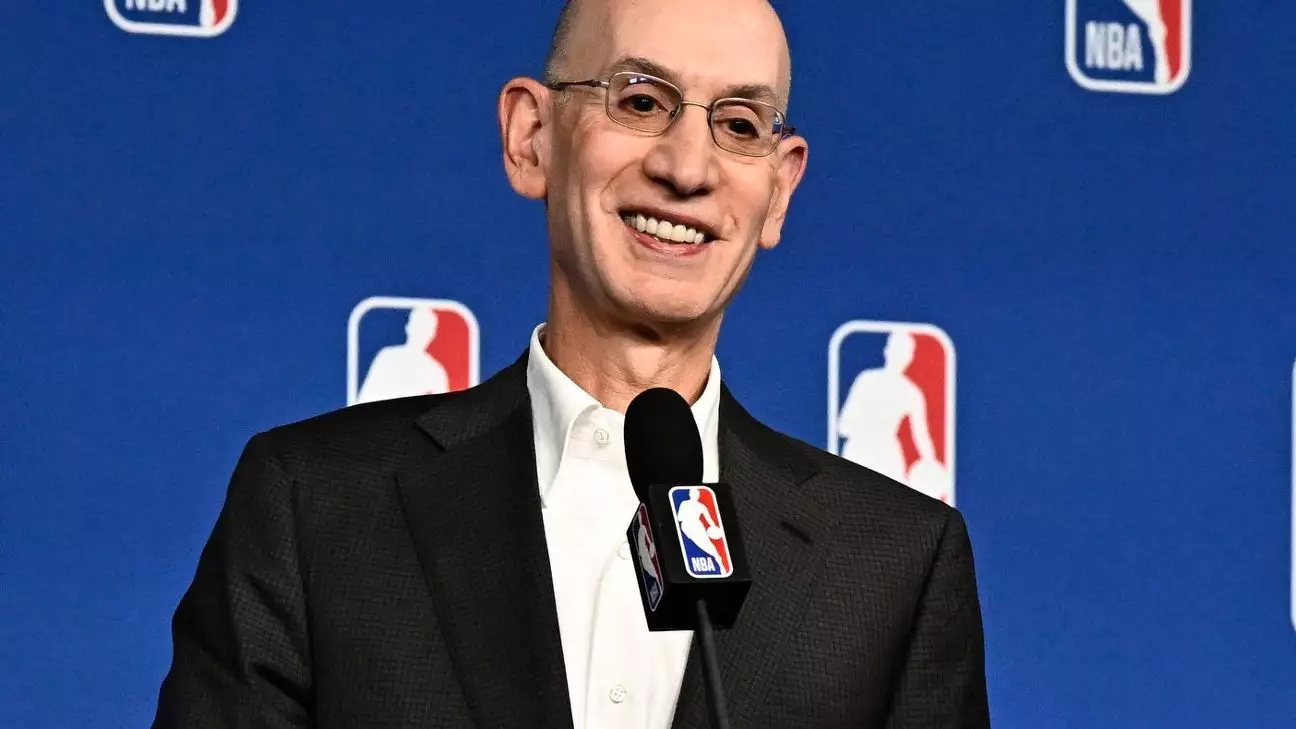The landscape of the National Basketball Association (NBA) has been evolving, filled with speculation about expansion, team sales, and the league’s relationship with legalized sports betting. Recent comments from NBA Commissioner Adam Silver provide a fresh lens through which to examine these critical issues, offering insights that may set the course for the league’s immediate future.
The possibility of NBA expansion has resurfaced as a topic of interest, particularly among fans in iconic basketball markets like Seattle and Las Vegas. Commissioner Silver clarified during a recent press conference that expansion is an ongoing conversation but has not yet reached the level of actionable steps. He expressed that while there is enthusiasm and readiness from stakeholders, the league is adopting a cautious approach, emphasizing that having the new collective bargaining agreement and television deals settled provides a more stable base for planning expansion.
This meticulous approach raises several questions. Why is the NBA demonstrating such restraint, particularly given the high-profile markets under consideration? The complexities of financial forecasting, successful team integration, and ensuring competitive balance may be at the forefront of these decisions. Moreover, assessing fan engagement and arena readiness in potential expansion cities is crucial. Silver celebrated the renovations of arenas such as Climate Pledge Arena in Seattle but refrained from committing to whether the city would regain an NBA team, highlighting the ambiguity surrounding potential future markets.
In addition to expansion discussions, the issue of team ownership is heating up within the league. The Minnesota Timberwolves, amidst a drawn-out sale process, illustrate the intricacies surrounding franchise transitions. The legal entanglements between former owner Glen Taylor and prospective owners, including notable figures such as Alex Rodriguez, reflect how ownership dynamics can influence broader league stability. Silver’s assertion that the league would remain hands-off in this legal battle not only underscores the independence of ownership negotiations but also points to a strategic silence that prioritizes team culture over ongoing litigation.
Similarly, the sale process concerning the Boston Celtics adds another layer of intrigue. The Celtics’ ownership has been open about its intention to sell, especially after achieving a milestone of 18 titles. Silver’s comments indicate an understanding that each sale requires careful consideration on its individual merits, rather than imposing blanket policies on all transactions. This case-by-case evaluation speaks to a broader trend in professional sports where ownership structures are continually evolving in real-time.
Beyond arenas and franchises, the dialogue surrounding legalized sports betting is also a pivotal aspect of Silver’s tenure. Reflecting on his earlier advocacy for legalized betting in a previous op-ed, Silver reiterated his belief in the necessity of a regulated betting framework. As sports betting becomes ubiquitous across the United States, its implications for the integrity of the game, especially regarding underage gambling and irresponsible betting practices, have come to the forefront.
Silver’s perspective reveals a pragmatic understanding of the complex realities of sports gambling in today’s digital age. A federal framework for sports betting is not just a theoretical ideal; it is necessary for the consistency, regulation, and enforcement of fair play across different states. As state regulations proliferate and compete—sometimes inviting contradictions—this disorganized patchwork presents unprecedented complications for the NBA.
As the NBA navigates a myriad of challenges, from potential expansion to team sales and the regulatory framework of sports betting, it finds itself at a pivotal junction. The conscientious approach of assessing each market and ownership scenario distinctly demonstrates an evolution in the league’s philosophy, fostering a balance between ambition for growth and a commitment to integrity.
Looking ahead, it is clear that the NBA’s direction will be heavily influenced by these foundational discussions. As stakeholders prepare to engage in serious dialogue regarding expansion, the experiences of both team sales and the implications of legalized sports betting will undoubtedly shape the decisions made in boardrooms across the league. The landscape of the NBA is poised for transformation, and its future will depend heavily on how well it manages these evolving dynamics. As accolades, championships, and expansions loom, the heart of the league remains its commitment to the game and its community of fans.


Leave a Reply